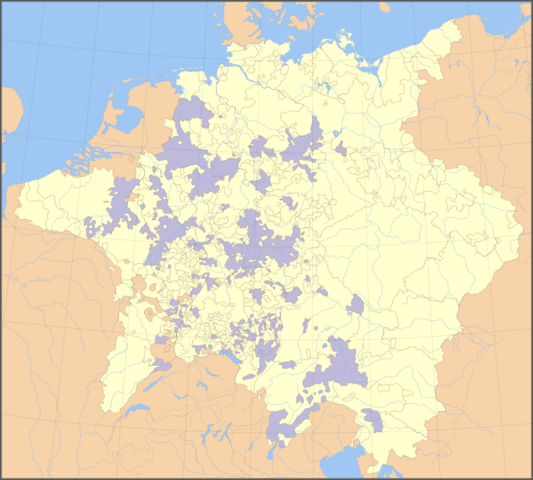OTL, Napoleon decided that, after the abolition of the HRE, in order to compensate the German prices that had lost territories west of the Rhine should be compensated by abolishing the various independent religious states as well as by merging the hundreds of polities within the HRE into a more manageable number of states. Now, let's say that there is no French Revolution and hence no Napoleonic Wars, would it be possible that a similar process of merging and secularisation of territories (mediatisation) could occur in a more organic manner within a surviving (if essentially powerless) HRE? In that case, who would be the beneficiaries of this different division since OTL the Habsburgs were screwed over?
Assuming that is, that France retains its easternmost borders from 1789.
Assuming that is, that France retains its easternmost borders from 1789.
